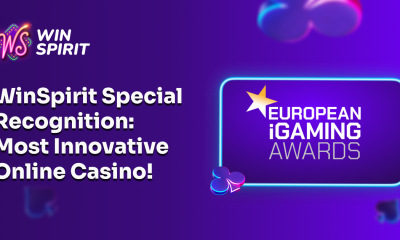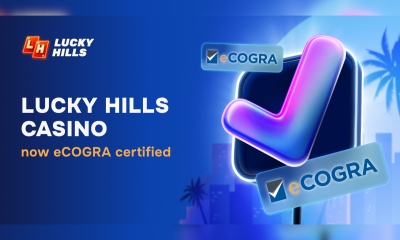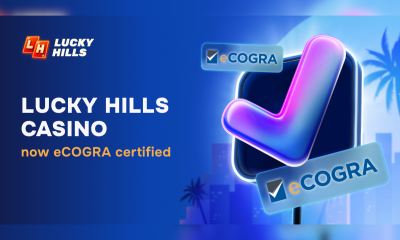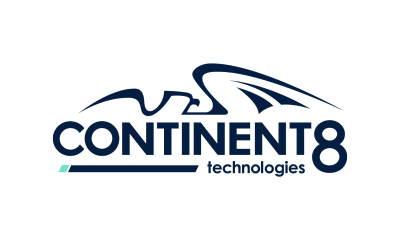Latest News
Understanding RTP and Why It Matters at an Online Casino

If you’ve spent even a minute playing slots at an online casino, you’ve undoubtedly come across something called RTP, which stands for Return to Player. This is almost always shown as a percentage, and it’s important for you to know exactly what it means. If you value your money and your time, you’d do well to read this quick article that explains what RTP is, breaks down slot volatility and shows how you should consider RTP when playing slots at an online casino.
What Is RTP?
The meaning of RTP is right there in the words themselves—return to player. RTP simply denotes how much of their money, on average, a player can expect returned to them given enough time. The idea of RTP and its meaning has been discussed by industry experts, such as Paygamble author Kevin Flynn, but this article is here to help if you are still having trouble understanding RTP. Take the following for example, a slot with an RTP of 97% means that if you bet $100, on average, you will get $97 back.
Now, that’s not to say that every spin will return less money than you wagered. Remember, this is on average. You can still hit the jackpot and win big, walking away with more than you put in and beating the RTP. Once you know that RTP is measured over ten or even a hundred thousand plays, you’ll realize that short-term play won’t always reflect a game’s RTP. RTP is the reason why the iGaming industry sees stunning revenue year after year, and knowing what it is can help you take a chunk of that back.
Looking at Volatility
While on the topic of RTP, you should also know how to identify slots with high and low volatility. Volatility refers to how often a slot machine pays out. Typically, a slot machine with lots of lines and different ways to win has low volatility. Your chances of winning are bigger, but the payouts are often smaller. On the other hand, slots with higher volatility tend to have fewer reels and fewer lines. You won’t win often, but when you do, the payout will be bigger than on a 5-reel slot with thousands of ways to win.
Considering RTP When Looking at Slots and Other Casino Games
RTP isn’t just found on slots; just about every casino game uses RTP as a metric, and it can often be found directly on the site itself or the site of the software provider. While RTP should be the main thing you consider, don’t forget volatility. A combination of volatility and RTP can give you greater insight into whether or not a game is worth playing.
- Low Volatility High RTP – Slots with multiple reels, progressives, minigames and more ways to win often have a higher RTP since players are winning more often.
- High Volatility Low RTP – You’ll find that traditional slots tend to have higher volatility but a lower RTP since players are winning less often. With fewer lines and reels, there are fewer ways to win.
- The Best Combination – A slot with low volatility and high RTP is ideal, as this means that you will be winning more often and losing less money in the long run compared to alternative games.
Most online casinos don’t have games with an RTP lower than 90%, but not every casino or software provider publishes their RTP statistics. You may want to avoid those casinos and games, as you will have no idea what to expect from the game and what the average return should be. Likewise, you’ll quickly find that the games included in bonuses for free spins tend to have high volatility and low RTP. This can easily change your opinion on what would have otherwise seemed like a great bonus.
House Edge vs. RTP
You may have heard the term ‘house edge‘ at casinos too, but you shouldn’t confuse it with RTP. Whereas RTP is the percentage of money returned to a player on average over time, the house edge is the odds of a game ending in the casino’s favor. When you hear house edge, you should think about games like roulette, blackjack, baccarat and sic bo. These games are all in favor of the house, with blackjack having the smallest advantage, making it a popular game for players.
With perfect strategy, you’ll win about 49.5% of the time on average in blackjack. This edge can vary from online casino to online casino, as the rules may be different. Some casinos add a triple zero to roulette, further increasing the odds of players losing. Always double-check what the house edge is and make sure that it is in line with your expectations.
Wrap Up
In short, understanding RTP is the key to succeeding in a house where the cards are stacked against you. By knowing how much is returned on average and looking at volatility, you can avoid games that are almost scams and keep more money in your wallet. Just remember that RTP is based on an average, so you aren’t technically going to walk away from every session with less money than you put in. There is always the chance that you can get lucky and hit the progressive or line up high-paying symbols. Whichever game you decide to play, do it responsibly and have fun.
ad formats 2026
PropellerAds Unveils Multi-Format Advertising Suite for Scalable User Acquisition (January 2026)

PropellerAds, a leading multi-source performance advertising platform, today launched a deeply integrated multi-format traffic strategy designed to deliver predictable conversions and scalable growth as acquisition costs climb and user attention fragments across devices and platforms.
Since 2011 PropellerAds has expanded beyond its Popunder roots into a full-service adtech platform that now includes Push, In-Page Push (IPP), Native/Display, Survey Traffic, and Telegram Mini Apps (TMA). This move positions the company as one of the few global providers offering integrated reach across traditional web placements and growing social/in-app ecosystems.
Why this matters for advertisers
Rising acquisition costs and cross-device fragmentation make single-format campaigns unreliable. PropellerAds’ multi-format suite lets brands, agencies and affiliates:
- Mix high-volume formats for rapid testing (Popunder) with high-intent formats (Survey Traffic).
- Reach audiences across Android, iOS and desktop with native-style creatives (IPP and Push).
- Tap emerging social channels via in-app experiences (Telegram Mini Apps) for engaged, low-disruption traffic.
The result: more stable scaling, flexible reach, and higher conversion predictability.
Key formats powering the platform
- Popunder Ads — volume and scale
Popunder remains a workhorse for large-scale acquisition, offering massive coverage, direct-click placements and cost control. It’s ideal for fast market tests and high-volume conversion funnels. - Telegram Mini Apps (TMA) — social traffic growth
TMA brings in-app interstitials, banners and task-based units inside Telegram’s Mini Apps. Advertisers gain access to highly engaged social users with performance optimization that preserves user experience. - In-Page Push (IPP) — native, cross-device reach
IPP delivers notification-style creatives embedded within webpages without opt-in, covering Android, iOS and macOS. Its native look and wide device support increase engagement and CTR while filling gaps left by traditional push. - Push Format — persistent outreach
PropellerAds’ Push ads reach users outside browsing sessions via browser notifications. As an early mover in push ads, PropellerAds now delivers billions of daily impressions to support remarketing and time-sensitive campaigns. - Survey Traffic — high-intent audiences
Survey Traffic funnels users who actively participate in surveys to advertiser landing pages, producing audiences with elevated intent—especially effective for finance, subscriptions, rewards, and lead generation verticals.
PropellerAds’ strategic edge
By combining multiple traffic types and automated optimization, PropellerAds aims to protect campaigns from volatility in any single channel. The platform’s cross-format approach helps advertisers adapt to shifting traffic patterns while maintaining ROI targets.
“With user behavior shifting across screens and contexts, PropellerAds’ multi-format synergy is now essential for scalable growth,” says Julia Larionova, Head of Marketing at PropellerAds. “Platforms with integrated formats and automated optimization will gain a competitive advantage as traffic continues to diversify.”
Bottom line
PropellerAds’ multi-format expansion reflects the adtech industry’s shift toward integrated, cross-device acquisition. For marketers facing rising traffic costs and fragmented attention, the platform offers diversified ad formats and performance tools to scale more reliably in 2026 and beyond.
The post PropellerAds Unveils Multi-Format Advertising Suite for Scalable User Acquisition (January 2026) appeared first on Eastern European Gaming | Global iGaming & Tech Intelligence Hub.
Age of Empires competitive
Team Vitality Enters Age of Empires II Esports with Star-Studded Roster
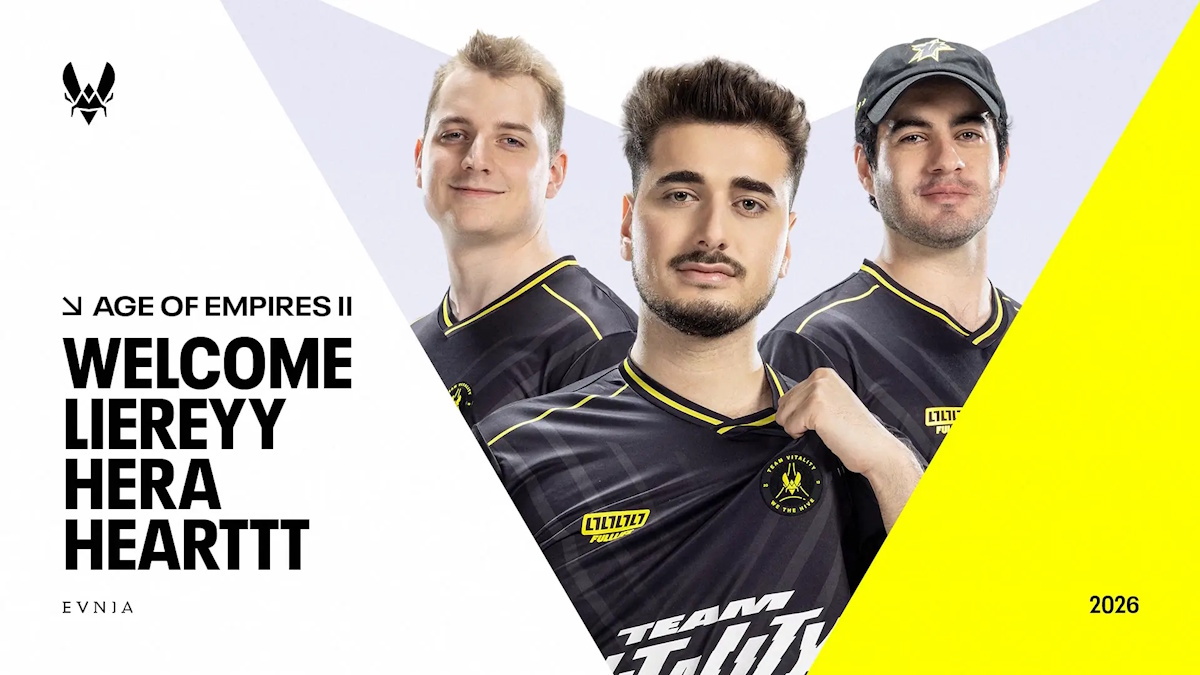
Team Vitality, one of the most influential names in modern esports, has officially announced its entry into the Age of Empires II competitive scene. This marks a major milestone: the merging of a contemporary esports powerhouse with one of the most iconic real-time strategy franchises in history.
Aiming for the Throne: Star-Studded Roster
Team Vitality isn’t just entering for exposure — they are targeting dominance. The team has assembled a roster featuring three of the most decorated players in Age of Empires II history:
- Hamzah “Hera” El-Baher – The Golden Boy
Known for his unmatched consistency and strategic mastery, Hera defines the modern AoE era. In 2023, he achieved a historic 14-tournament winning streak in S-Tier events. Fresh off his Red Bull Wololo: El Reinado 2024 victory, the current Player of the Year is set to continue his reign under the Vitality banner. - Kai “Liereyy” Kallinger – The Archer God
Renowned for exceptional micro-management and aggressive play, Liereyy brings mechanical perfection and explosive strategies to the squad. A multi-time Red Bull Wololo Champion (II & IV), the Austrian star is widely regarded as one of the most spectacular talents in the game’s history. - Hernán “Hearttt” Pizarro – The Veteran Strategist
With a professional career dating back to 2012 and 80+ tournament appearances, Hearttt is the rock of the team. Named Comeback Player of the Year 2023, the Peruvian strategist provides depth, resilience, and unparalleled tactical insight.
First Major Appearance: Red Bull Wololo 2026
Team Vitality’s AoE II roster will make its competitive debut at Red Bull Wololo 2026: Londinium, one of the most prestigious events on the global RTS calendar. Fans can expect high-level strategic gameplay and the start of Vitality’s quest for world championship titles in the genre.
“At Team Vitality, our expansion is always driven by a certain ambition: to compete for and win World Championships in the world’s most iconic games. Age of Empires and our new superstar lineup align perfectly with that vision… We are honored to be part of this history and can’t wait to welcome AoE fans into the Vitality Hive.” — Danny Engels, Corporate Director, Global Operations, Team Vitality
Why This Matters
Team Vitality’s entry into Age of Empires II is a significant moment for the RTS esports ecosystem:
- It bridges legacy RTS titles and modern esports organizations.
- Brings global visibility to Age of Empires II tournaments.
- Sets the stage for strategic showdowns at major international events.
With Hera, Liereyy, and Hearttt, Team Vitality is positioned to challenge for the top spots in competitive AoE II and potentially reshape the RTS landscape for years to come.
The post Team Vitality Enters Age of Empires II Esports with Star-Studded Roster appeared first on Eastern European Gaming | Global iGaming & Tech Intelligence Hub.
AFCON 2025
AFCON’s month of football did not lift iGaming demand — Blask data analysis
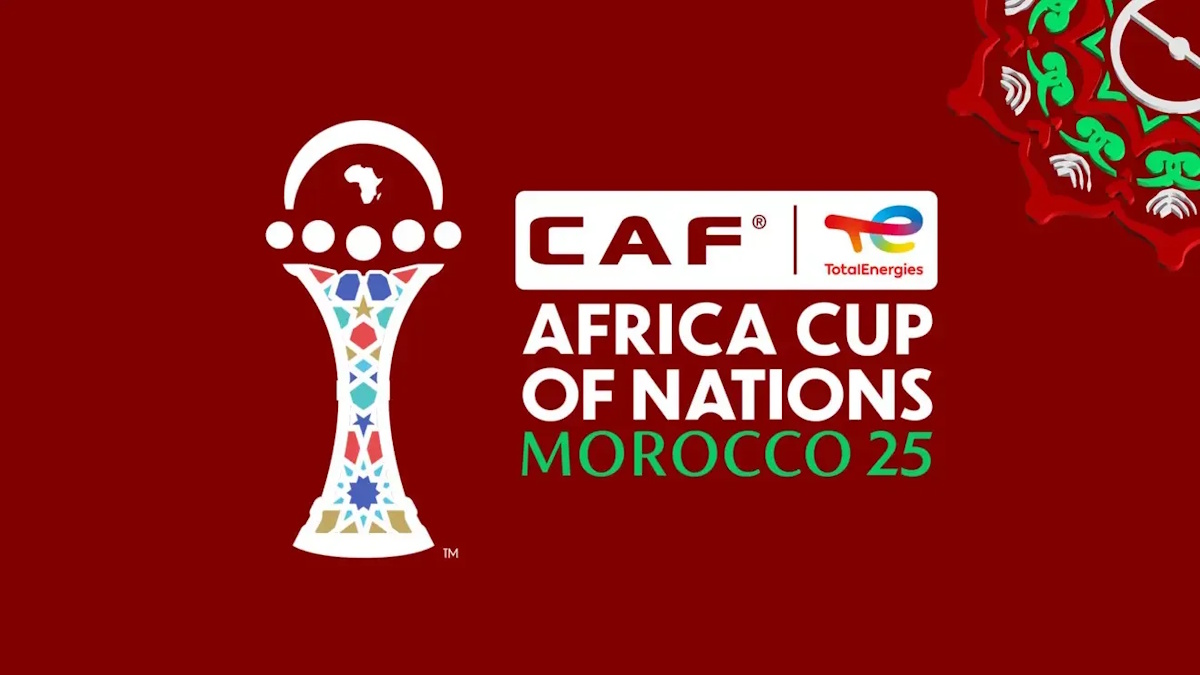
AFCON 2025 ran from 21 December to 18 January, packing 52 matches across 19 matchdays. Given that schedule and the heavy interest in favourites such as Senegal, Morocco, Nigeria and Egypt, many expected a measurable boost in online gambling activity. However, Blask data shows the tournament produced only occasional deviations from normal patterns — even in the nations with teams that reached the final stages.
Key findings from Blask data
- No broad uplift: Overall iGaming demand did not climb consistently across markets during AFCON.
- Weekly rhythm dominated: The Blask Index largely followed pre-existing weekly patterns; matchday timings rarely overrode those cycles.
- Host-country anomaly: Morocco — with more viewer-friendly kick-offs (five of seven on Sundays or Friday evenings) — recorded the largest single day-to-day Blask Index move (26 December, Morocco vs Mali at 21:00 local).
- Vertical competition mattered: Live-match excitement often drew attention away from casino play rather than increasing it. Hourly Blask Index figures frequently fell or stayed flat during national-team matches.
- Market-share stability: Dominant brands (usually 1–4 operators) retained their daily shares; AFCON did not reshuffle leaders in most markets.
Why AFCON didn’t create a sustained iGaming spike
- Calendar beats event noise. Daily and weekly user habits — workweek rhythms, prime-time viewing slots and local schedules — remained the strongest determinants of iGaming demand.
- Attention is finite. While live betting benefits from matchday attention, casino verticals compete for the same user time. In practice, watching matches often reduced casino activity.
- Operator strategy limits volatility. In markets controlled by a few large operators, firms manage audience attention by shifting promotions across verticals rather than expanding overall demand. That keeps market shares relatively steady.
Notable exception: Nigeria’s operator flip-flop
Nigeria bucked the broader trend: two brands controlling 70%+ of audience attention exchanged top positions frequently. Bet9ja was the 2025 leader overall, but SportyBet overtook it on most AFCON days, including all Nigeria team matchdays — showing how high-profile tournaments can temporarily reorder leaderboards where competition is extremely concentrated.
What this means for operators and marketers
- Promotions should be tactical, not assuming scale. Expect matchday windows to deliver spikes in live-bet engagement but not necessarily a net rise across iGaming.
- Vertical-specific offers perform better. Tailor live-betting promos during matches and protect casino revenues with off-peak incentives.
- Local kick-off times matter. Host nations or markets with viewer-friendly schedules can see stronger short-term lifts — use that to time campaigns.
Conclusion
AFCON 2025 drew continent-wide interest, but Blask’s daily and hourly data indicate no broad, sustained iGaming uplift. Instead, the tournament rearranged attention — boosting live-bet engagement at times while leaving overall demand on its usual calendar-driven trajectory. For operators, the insight is clear: the calendar is king, and major sporting events tend to redistribute, not expand, iGaming activity.
The post AFCON’s month of football did not lift iGaming demand — Blask data analysis appeared first on Eastern European Gaming | Global iGaming & Tech Intelligence Hub.
-

 Austria6 days ago
Austria6 days agoEU Court Ruling on Online Gambling Liability: Players Can Sue Foreign Operators’ Directors Under Their Home Country Law (Case C-77/24 Wunner)
-

 Latest News6 days ago
Latest News6 days agoSKIP THE QUEUE WITH THE MIDNITE SHUTTLE: MIDNITE TEAMS UP WITH SNOOKER LEGEND TO OFFER FANS A FREE SHUTTLE SERVICE FROM ALLY PALLY STATION
-

 Continent 8 Technologies6 days ago
Continent 8 Technologies6 days agoContinent 8 and CEO Michael Tobin claim number one spot in GamblingIQ’s global ‘Security 10’ rankings
-

 CGCC6 days ago
CGCC6 days agoADVISORY: ILLEGAL GAMBLING OPERATION USING FORGED COMMISSION CREDENTIALS
-

 10 Alebrijes Eternal7 days ago
10 Alebrijes Eternal7 days agoAmusnet Releases “10 Alebrijes Eternal” Slot
-

 BetCity.nl7 days ago
BetCity.nl7 days agoBragg Gaming Group Signs Deal with SuomiVeto
-

 Africa7 days ago
Africa7 days agoPlaytech Partners with LottoStar to Boost Operations Across South Africa
-

 Balkans6 days ago
Balkans6 days agoCT Interactive Appoints Martin Dimitrov as its New Commercial Manager



